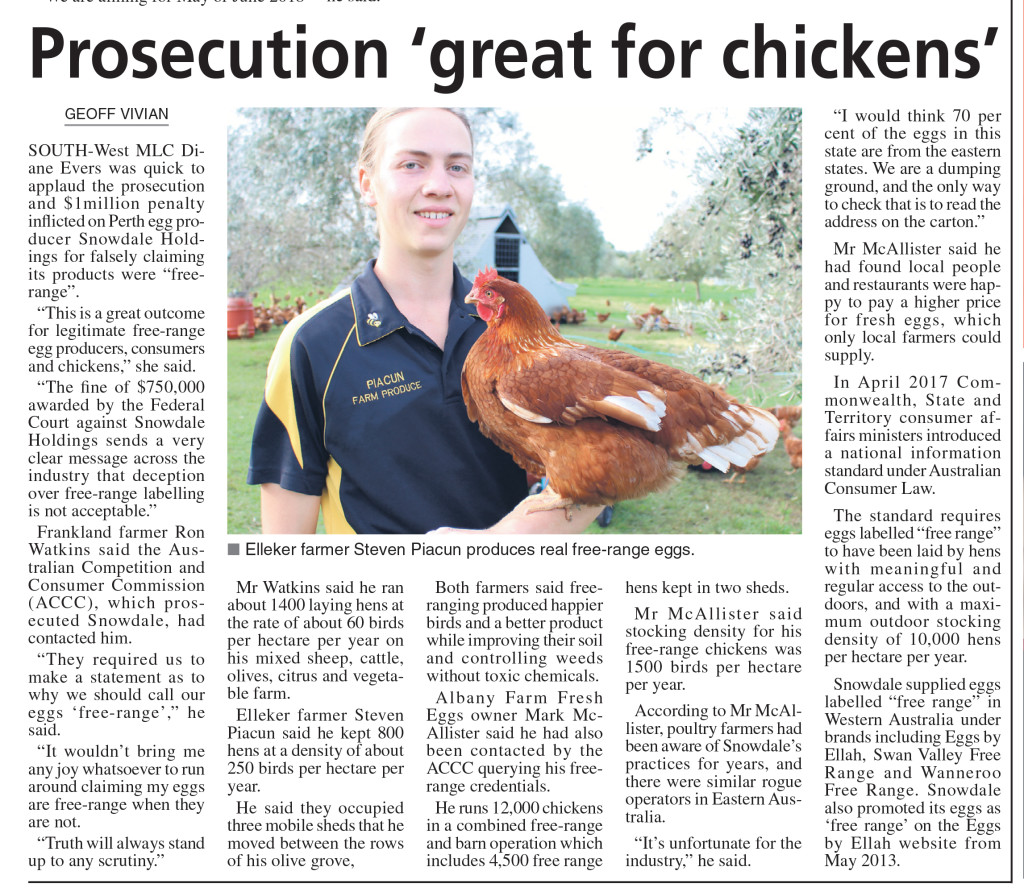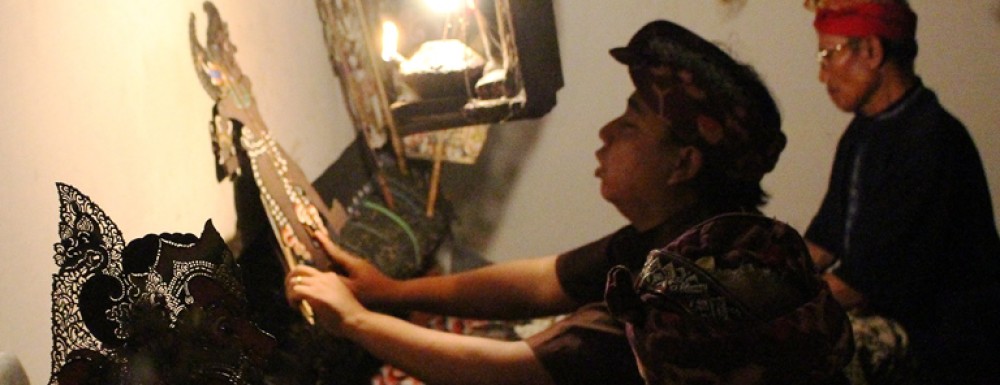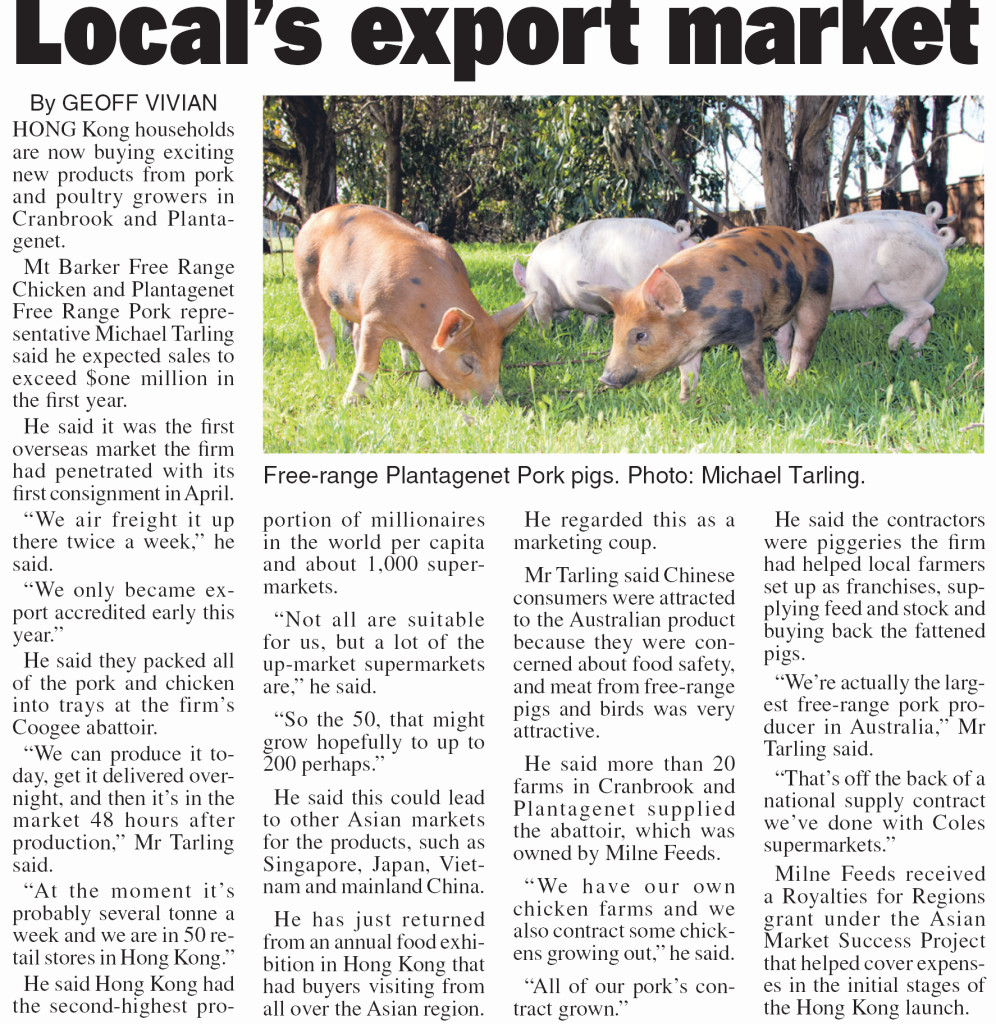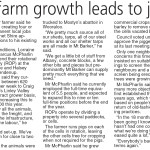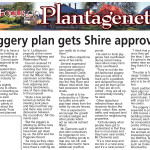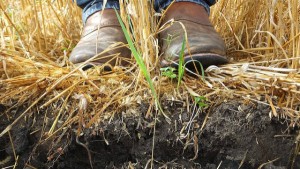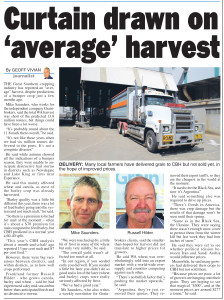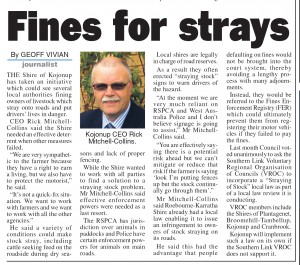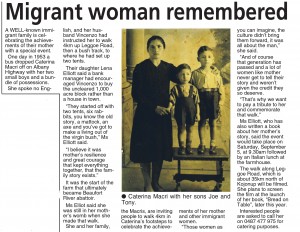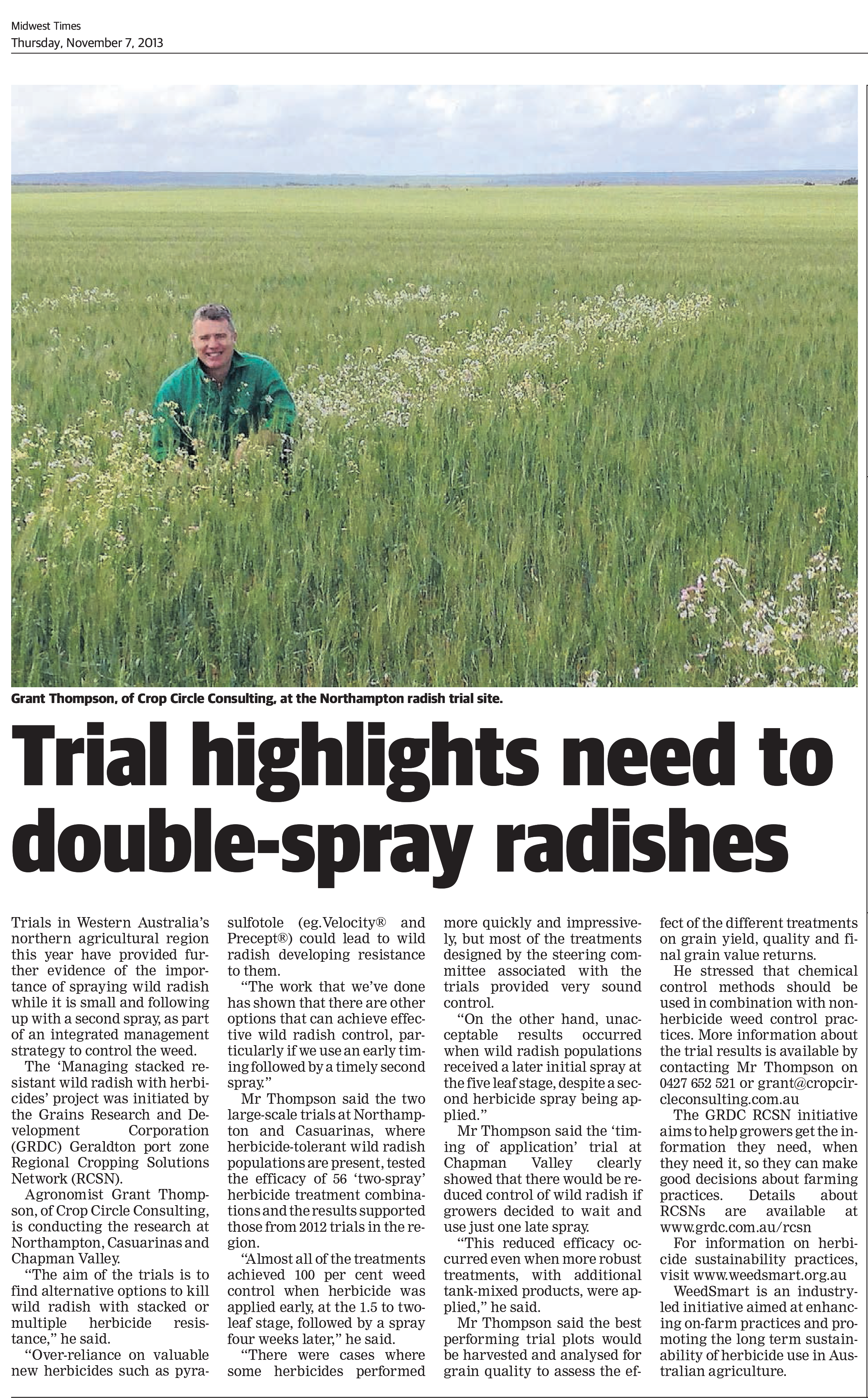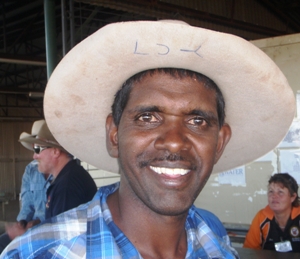A KATANNING local says although Frankland and Plantagenet vignerons have been celebrating “50 years of wine”, his family planted the Great Southern’s first vineyard a century ago.
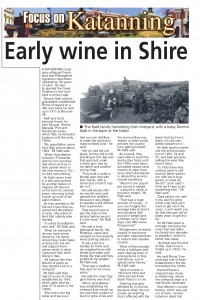
Click on this image to read the story.
Derrick Nalli said his grandfather established Roma Vineyard on a 440 acre block he took up in 1911 at Broomehill.
Nalli and Sons became known for their Muscat, Sherry, Marsala, Port and Hamburgh wines, which they continued to produce until the early 1950s.
“My grandfather came from Italy around about 1904,” Mr Nalli said.
“When Grandfather arrived in Fremantle with his one son they had seven and six in
their pocket which in the new money is 75c – so they had nothing.”
Mr Nalli senior lived in a tent and worked for another Italian immigrant, Mr Genoni, on his farm for several years, returning to Italy to pick up most of his eight children.
From The Great Southern Weekender, October 15, 2015.
